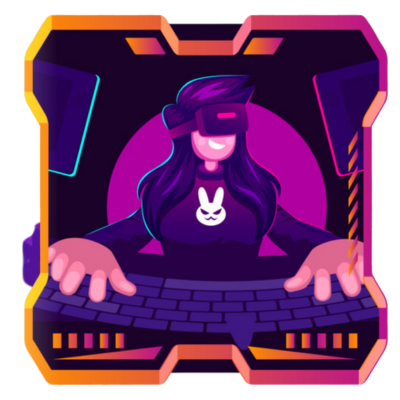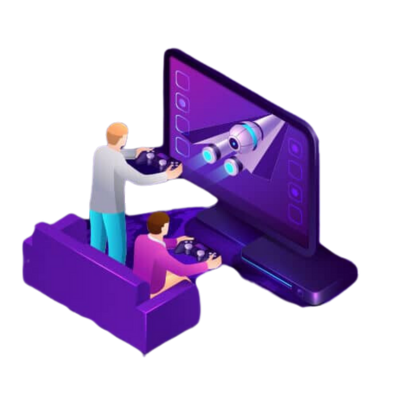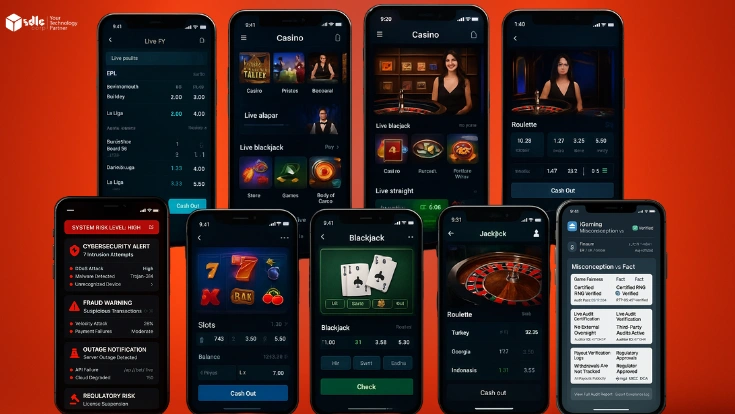Introduction
The worlds of gaming and cryptocurrency wallet development company are evolving at breakneck speed, and while they once seemed like parallel paths, they are now converging in ways that blur the lines between entertainment and financial innovation.
This intersection is more than just a passing trend; it’s a transformative wave that’s reshaping how gamers and cryptocurrency enthusiasts interact, invest, and engage in virtual worlds. At the heart of this fusion lies the role of gaming consoles, which are emerging as pivotal gateways to these immersive digital ecosystems. But how exactly are consoles shaping this future? Let’s dive in.
Level up to earn real rewards!
Our team of expert is on hand to assist you

The Rise of Cryptocurrency in Gaming
Cryptocurrency’s foray into gaming didn’t happen overnight. It began as an experimental layer, allowing players to use digital currencies for in-game purchases. But as blockchain technology evolved, so did the applications within gaming. We’ve seen games like Axie Infinity and Decentraland push boundaries, creating decentralized virtual worlds where players don’t just play—they invest, trade, and even earn a living.
What makes blockchain and cryptocurrency alluring for gamers is the promise of true ownership. In traditional games, items and currency stay within the game. In contrast, blockchain allows players to own assets outside the game, trading or selling them in open markets. This new paradigm of digital ownership is what makes the union of gaming and cryptocurrency so compelling.
Play-to-Earn Games: Turning Gamers into Investors
Play-to-earn (P2E) games are turning gaming into a lucrative endeavor where players earn rewards in the form of cryptocurrency. These games leverage the blockchain to create economies where in-game tokens hold real-world value. For many, this has evolved from a hobby into a side income, or even a primary livelihood.
Consider Axie Infinity, a game that has gained global attention. Players breed and battle creatures known as Axies, earning tokens that can be exchanged for traditional currency. For some, particularly in regions with struggling economies, these tokens have become a significant source of income. This transformative approach not only incentivizes gameplay but also introduces gamers to the world of crypto trading and investing, bridging the gap between two distinct yet increasingly intertwined communities.
Consoles as the Gateway to Virtual Worlds
Gaming consoles, once viewed purely as entertainment devices, have evolved into powerful computing platforms that support augmented reality (AR), virtual reality (VR), and now, even blockchain integration. Today’s consoles—such as the PlayStation 5, Xbox Series X, and upcoming iterations—aren’t just designed for higher frame rates and stunning graphics. They are becoming gateways to expansive virtual worlds, capable of housing decentralized economies and digital marketplaces.
As consoles embrace these evolving technologies, their role in pushing the limits of what’s possible in gaming becomes ever more crucial. The hardware improvements, particularly with graphics processing units (GPUs) and data storage, enable richer and more immersive worlds. But it’s not just about visual appeal. The potential for integrating wallets, NFT marketplaces, and decentralized applications (dApps) directly into consoles could make them the launchpad for millions into the crypto universe.
Shaping the Future of Virtual Worlds Through Consoles
Consoles are not merely adapting to the changing landscape—they are shaping it. With each hardware iteration, they push the boundaries further, making virtual worlds more immersive, realistic, and economically viable. As gaming consoles become more integrated with blockchain technology, they set the stage for what could be the next phase of the internet: a decentralized metaverse where virtual and real economies converge.
Imagine a future where you could boot up your console and instantly access a virtual marketplace, trade digital assets, or even participate in decentralized governance—all while inside a game. This scenario may seem futuristic, but the groundwork is already being laid. Consoles are uniquely positioned to foster such a future due to their widespread adoption, powerful hardware, and dedicated user base.
With the rise of NFTs, consoles could become the hubs where players not only enjoy gaming but also engage in a myriad of digital activities—be it buying, selling, or creating virtual assets. It’s a significant leap from where we are today, but as more developers start creating blockchain-based games, consoles could very well serve as the front door to decentralized virtual worlds.
Start earning while you game today!
Our team of expert is on hand to assist you

Virtual Worlds as Economic Ecosystems
Virtual worlds have always featured some form of economy. Whether it’s gold in World of Warcraft or V-Bucks in Fortnite, the concept of in-game currencies is nothing new. But cryptocurrency has taken this to the next level by giving these digital currencies real-world value and liquidity. Now, virtual worlds can function as economic ecosystems where digital goods and services are traded, and the lines between in-game economy and real-world finance are increasingly blurred.
Blockchain technology enables players to transfer value outside the confines of the game, creating entirely new business models around gaming. Players can earn by engaging in activities like crafting items, trading NFTs, or even offering virtual services. Games such as Second Life and Entropia Universe have demonstrated that virtual economies can be self-sustaining, allowing players to exchange in-game currencies for fiat money. The integration of blockchain could potentially make this the norm rather than the exception.
Bridging Gamers and Crypto Enthusiasts: The Role of Digital Ownership
At the center of this convergence lies the concept of digital ownership, a term that’s become synonymous with the rise of NFTs (Non-Fungible Tokens). In traditional gaming, players spend countless hours collecting items, unlocking achievements, and customizing their characters, but all that data belongs to the game developers. Blockchain turns this model on its head by allowing players to truly own digital assets and transfer them across different platforms.
This development has profound implications, not just for gaming but also for the wider adoption of cryptocurrency development. As gamers get accustomed to buying, trading, and holding digital assets within games, they inadvertently step into the broader world of crypto. The concept of a decentralized metaverse—a virtual space where digital ownership and decentralized governance coexist—becomes more tangible as gamers increasingly engage with blockchain-backed games.
Challenges in Bridging Gaming and Cryptocurrency
However, it’s not all smooth sailing. The merging of gaming and cryptocurrency faces several challenges, such as regulatory hurdles, technical limitations, and community skepticism. Many gamers remain wary of crypto-based mechanics due to the association with speculative trading, scams, and environmental concerns surrounding blockchain mining.
The gaming industry itself also faces technical limitations. While consoles continue to grow in power, the demands of blockchain integration, especially in terms of transaction speed and data storage, can still be a challenge. Moreover, integrating crypto-based economies into consoles requires collaboration between console manufacturers, game developers, and blockchain platforms, which can be a complicated and lengthy process.
The Future: Virtual Worlds, Consoles, and Crypto Convergence
The future looks promising for the convergence of gaming and cryptocurrency, but it won’t happen overnight. As technology continues to advance, we will see more seamless integrations between virtual worlds and decentralized technologies. The introduction of 5G networks, advancements in AI, and further developments in VR/AR will play significant roles in this transformation. These technologies will enhance the immersive quality of virtual worlds, making them more complex and lifelike, while the blockchain will add layers of economic depth.
Consoles are likely to be at the forefront of this evolution. With companies like Sony and Microsoft already exploring ways to integrate blockchain technology, we could see the next generation of consoles come with built-in crypto wallets, NFT marketplaces, and decentralized app support. Such integration would enable gamers to experience the metaverse not as an abstract concept but as a tangible reality that they can interact with daily.

Conclusion
Gaming is no longer just about entertainment, and cryptocurrency isn’t just for tech-savvy investors. The convergence of these fields is leading us toward a future where virtual worlds, decentralized economies, and digital ownership redefine how we interact with technology. Gaming consoles, with their powerful hardware and widespread appeal, are poised to act as gateways to this new reality, bridging the gap between gamers and cryptocurrency enthusiasts.
As this transformation unfolds, it will not only change the gaming landscape but also reshape how we view the value of digital assets, the role of decentralized governance, and the very nature of what it means to “own” something in the digital age. The journey has only just begun, and with consoles leading the charge, the line between virtual worlds and reality will continue to blur, bringing us closer to a truly interconnected digital ecosystem.

















